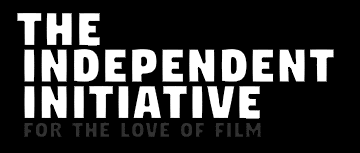Let’s be real, as independent filmmakers, we’ve got to be tenacious in every aspect of our film and think up innovative ways to get our film out there. If you’ve been following along in this series, then you already know that writing a novelisation of your movie may just be the X factor for not only helping to promote your indie but also be a source of income to help you produce the project in the first place. If you’re just joining us, welcome! You may want to take a look at Part 1 and Part 2 before diving in with this article, but you know, totally up to you.
Today, in Part 3, our pièce de résistance, the final piece in the pie, grand finale, and epic conclusion we’re going to take a look at indie publishing versus traditional publishing and all the perks and pitfalls of both. As well as a more detailed look at how to approach either, this one’s gonna be a doozy, so strap in and let’s get out of these woods.
HOW TO FINISH
So you’ve adapted your screenplay into a novel, edited the crap out of it, sent it off to an editor and again edited more of the junk out, what now? Time to decide if you’re going to self publish or look for traditional publishing. This is what we’re trying to decide right now with the novelisation of Out Of The Woods. We’ve done a lot of research on all the pro’s and con’s of each, here’s what we found:
First, let’s look at the pros and cons of Independent Publishing … By going this route, all of the creative control stays with you, this is both a pro and a con. Pro because you get to decide on the final format, cover, release date, marketing, etc, but this is also a con because everything is on your shoulders.
It means you have to basically produce the novel. As a tiny example, think of how you created your film’s poster. Chances are you found someone to create it for you, likewise, you’ll need to work with another creative who can make a great cover for your book. You can do it yourself, but you’ll need to be familiar with what goes on a cover, like leaving room for a barcode on the back. Some of the publishing platforms like Kindle Direct Publishing (KDP) will actually give you a template for creating your own based on how many pages your book is.
Then there’s the decision on what platforms you want to publish your novel – Amazon’s KDP is one of the leading options, but there are others, like Ingramspark, but basically, this is going to take some serious research on your part. And you’ll need to decide whether or not you want to purchase your own ISBN* or go with one from the site where you’re publishing.
The biggest drawback is that there’s a lot to think about and a lot of decisions to make. Picking the type of paper white, cream, multicolor (if you’re doing a paperback option), what terms like ‘bleeding’ mean in the book world, where to put the table of contents versus the acknowledgments, and so many other random tiny details.
example of Amazon’s KDP service for indie publishing
In summary, publishing your novelisation the independent route is a benefit because you’re already used to doing everything on your own, having creative control, etc, and most of the platforms available are pretty user-friendly, and you get to keep more of the proceeds – which could go back into producing another film.
Now let’s look at the pros and cons of Traditional Publishing … first of all, you will have little to no creative control over the final look of the cover, format, etc.
BUT, depending on who publishes it, you’ll have a better chance at reaching a wider audience for your book and in turn your film. At a writing conference, I went to, Divergent author, Veronica Roth, mentioned she went with traditional publishing because she had no idea how to market a novel. She knew someone else could do a much better job at reaching a wider audience. This is a HUGE bonus to the traditional route, but it’s a hard slog and not many find success.
If you decide it’s worth it, you’ve got to start by finding an agent, which takes lots of research. You want to find someone who loves your writing as much as you do. Kinda like I mentioned finding a good editor, shopping for the right agent is also like looking for a new best friend, or at the very least, your biggest fan. It’s the agent who then pitches your book to different publishing houses. Most publishing companies won’t take queries directly from an author, it’s all done through an agent now.
To look for an agent, there are great resources like the Publisher’s Marketplace where you can find Agents and Agencies, but there are a few things you’ll need to prepare before just reaching out and asking them to be your fan and bestie. But first let’s look at a few things to consider when Agent shopping.
- Do they represent books in your genre?
- Are they currently taking submissions?
- What do they specifically ask for from authors? (ie. what do they want in a query letter, how many pages or words can you submit from your book, do they want you to query via email or snail mail, do they ask for any specific formatting, and do they ask for any specific information or author bio? etc)
- Do they promote their authors on their personal socials? And from this research do you think you’d get along with them?
- What kind of success rate have they had?
If you’ve done all this work, now it’s time to prepare what you’re going to send them. At the top of that to-do list should be writing a Query Letter. You’ve probably seen that mentioned a few times now and may be wondering what in the world it is, well it’s kinda like pitching a movie. You’ve got one page to convince the agent that your book is the best and it’s all about the wording. The cool thing is, you can find a lot of helpful Q&A articles from each agent on what they look for in a Query Letter to give you an idea of what to write.
Really, whether you pick indie publishing or traditional publishing, there’s a lot of work and research to do. The biggest differences are that indie publishing gives you more control over all aspects and the majority of the proceeds come back to you. Whereas traditional will be a much smaller royalty (being split between you, your agent, the publishers, etc) and you may have little to zero creative control on the actual product.
Phew! We’ve only brushed over this topic, but I hope it gives you an insight into how to adapt an indie screenplay into a novel. We’d love to hear your feedback if you enjoyed this series and want more details, sound off in the comments and let us know how we can help.
Alright, folks, I gotta get back to editing Out Of The Woods. And I reckon it’s time for you to be tenacious and start your novelisation!
















